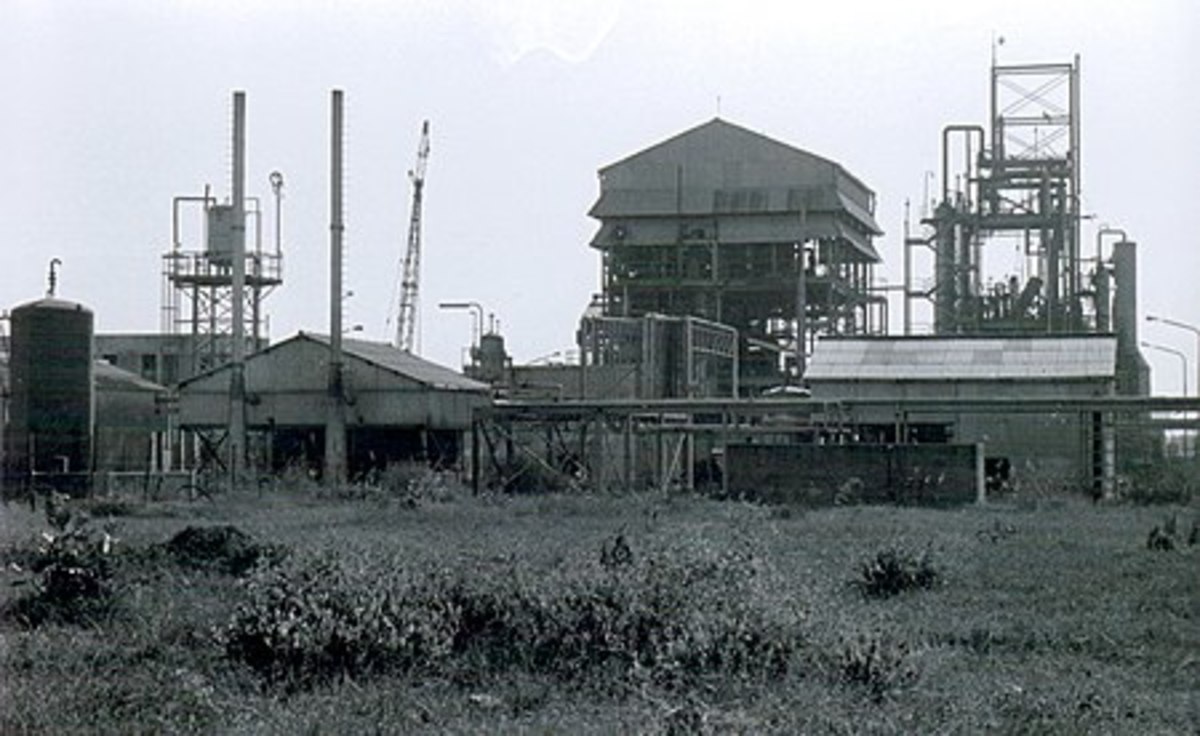What is Synthetic Oil?

What exactly is synthetic oil? Should you use conventional oil or synthetic? Which is better for your car and the environment? Which type of oil is more expensive? Read on to find out the answers to these questions and more!
I will be the first one to admit that I am no where near being a car expert. I usually let my boyfriend handle most of our vehicle maintenance needs. However, recently he asked me if it would be alright if he used synthetic oil for my next oil change instead of conventional oil. I didn't know much about synthetic oil, so I spent some time asking questions and researching. I will share my findings for anyone else trying to make the decision between the two.
What is Conventional Oil?
Regular motor oil is processed from crude oil found in the ground. A combination of organic (once living) material, mud, and the extreme temperatures found deep in the earth's surface cause the formation of crude oil. It takes millions of years for crude oil to form, so it is not easily considered a renewable resource. BP recently stated that there was only enough oil left to supply the world for about 41 more years. For most of us, this means we will run out in our lifetime. For the rest, it will most likely run out in your children's lifetime. This would drastically chance our current lifestyles, and is actually a very scary thing to think about.
What is Synthetic Oil?
Synthetic oil is created by humans and not by a natural process. It is artificially created or synthesized. However, many of the performance additives used in synthetic oil are natural ingredients such as animal fat.
Personal Benefits of Using Synthetic Oil
Most people seem to be in agreement that synthetic oil is better for your engine and car. During the process of refining crude oil, it is impossible to remove all of the contaminants it contains. Synthetic oil is cleaner in this sense. It also keeps your valves cleaner than the gunk that comes with conventional oil.
Also, synthetic oil is not as prone to breaking down or deteriorating.This means that you can go longer in between oil changes. It is suggested that conventional oil be changed every 3,000 miles, but this number jumps to 15,000 miles with synthetic! This saves you both time and money in the long run. Synthetic oil also allows your vehicle to get more miles to the gallon of gas, because it doesn't require your engine to work so hard.
Environmental Benefits of Synthetic Oil
There is a debate on rather or not synthetic oil is actually any better for the environment. It does still contain some chemicals that can be harmful. However, it does indirectly help the environment. It is not extracted from the earth, and it saves some of our precious non-renewable resources. An added bonus for Americans includes lessening our dependency on foreign fuel sources. Synthetic oil increases fuel economy which indirectly lessons gasoline usage, which helps even more.
More Eco-friendly oil solutions are expected in the future, but for now synthetic is the most environmentally friendly option.
Are There Any Pro's for Conventional Oil?
The only real notable Pro for using conventional oil is it's cost. Synthetic oil can cost up to 3 times more than the alternative. Although, if you figure in that it lasts longer and will save you plenty of gas money, synthetic oil really looks more like an investment.
Conclusion
After finding out the facts, I decided to switch to synthetic oil. I have no complaints so far. I would love to hear your opinions:
Vote
I use:
Visit my Sources for More Information
- There's enough oil left to last for 40 years, says BP | Energy Bulletin
- The Bureau of Ocean Energy Management, Regulation and Enforcement HomePage
The Bureau of Ocean Energy Management, Regulation and Enforcement. BOEMRE








